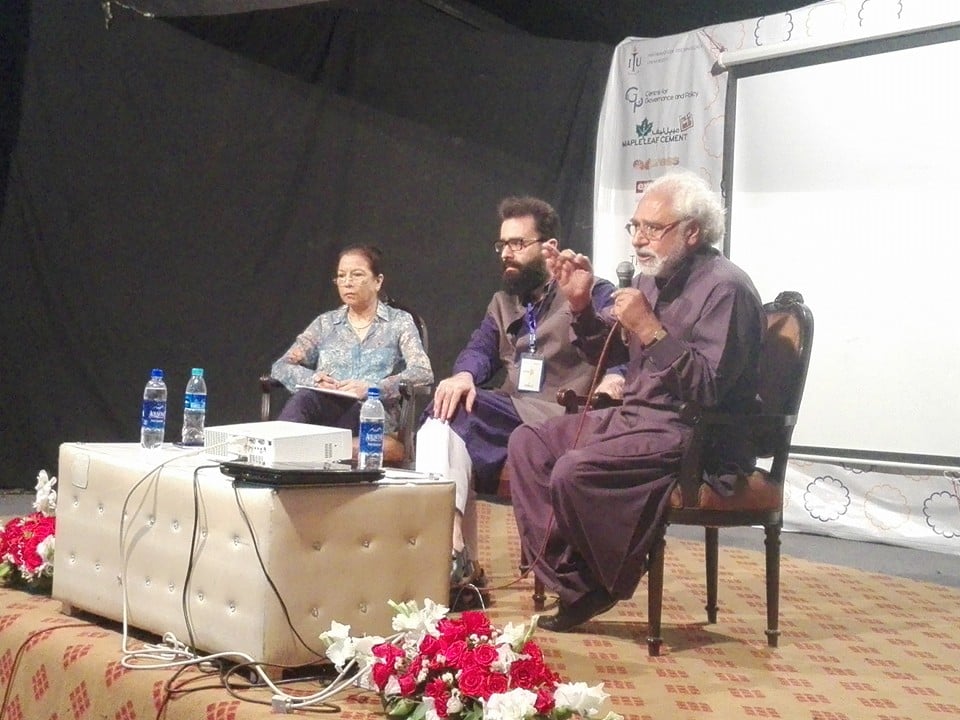
“This focus has come from the army,” Amir said. He argued that mosques and mullahs did not hold real power in the country. “Other institutions, especially the English speaking elite in various institutions define the State.”
The former MNA said a rise in religiosity in Pakistan could be attributed to the ruling class which has tried to use religion to justify just about everything and in the process mishandled the situation. Amir spoke of anti-Ahmadi riots used politically in the Punjab by then chief minister Mian Mumtaz Daultana. However, he said, Pakistan’s ‘religion problem’ became serious when it was adopted by the army – thought to be one of the few secular institutions in the country. Amir noted that it was the army that took a turn and gave a direction to the State. He explained that the process had come about as a result of several factors.

“The mullah has been used as a tool. The direction of the State has not been led by other institutions,” he said. The real problem, in his view, was the need to refocus the dominant ideologies of the State. “Over the past two years that has happened when the army changed the course…not because the politics of Pakistan was being redefined.”
Amir argued that change had taken place because the army had run short of patience. “The army, for whatever reasons, is changing course and is viewing things from a different perspective.”
He said Islam was not the problem, the direction of the State was. If ‘powerful’ institutions set the course right, he said, mullahs and loudspeakers could have their space, but with little relevance. “The State’s change of direction is the thing to look forward to.”
Dr Farzana Shaikh, associate fellow of the Asia Programme at the Chatham House, said Pakistan’s vexed relationship with Islam had left the State vulnerable. Attacks on religious minority groups were glaring examples of extremist trends that had deepened over time. “Chronic uncertainty of the State’s relationship with Islam and its ambivalence has given licence to Islamic militants to expose the contradictions of the State,” she said.
“Attempts to realign the State through ideas of moderate Islam had failed to dent the force of extremist Islam.”
She said the way forward was through a new constitutional arrangement that sought to empower citizens on the basis of equality.
She believed there was need to seek answer to the question: what was Pakistan really fighting for?
Published in The Express Tribune, April 4th, 2016.

















COMMENTS
Comments are moderated and generally will be posted if they are on-topic and not abusive.
For more information, please see our Comments FAQ